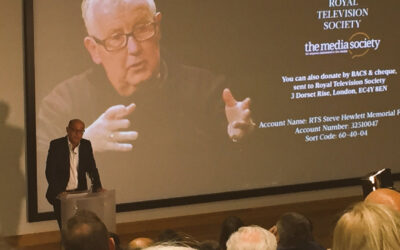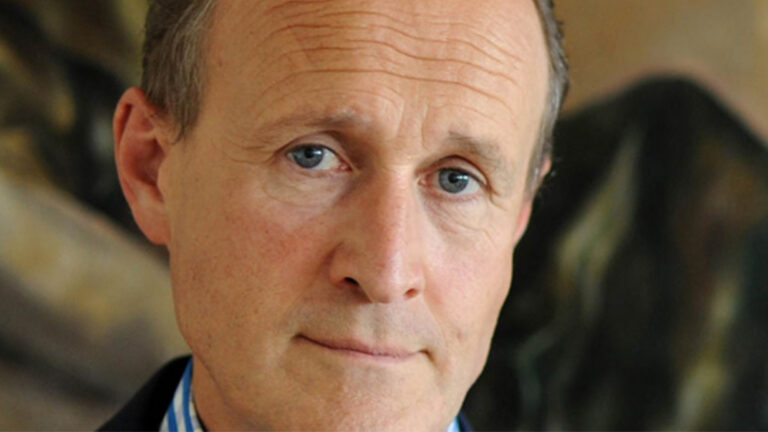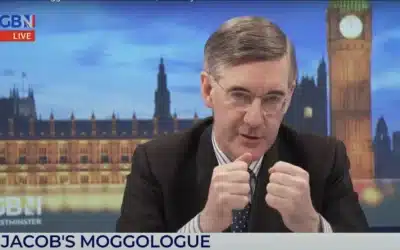Sir Peter Bazalgette believes the future of Public Service Broadcasting, will mean stronger partnerships with BBC, Channel 4, Sky, Virgin and BT.
The ITV Chairman called them its “critical partners” due to their subscriber data, advertising and targeting. This, he believed, will help British television retain commercial success globally.
“All these necessary alliances will be a very important part of making sure PSB remains accessible, well-funded and thus a deliverer of public good,” he told the audience at The Voice of the Listener and Viewer Autumn Conference.
“But the market definitions we currently work under will have to be refreshed. We’ll be talking, at the very least, about share of video or even display advertising, not television advertising. And maybe in markets no longer confined just to the UK…. The PSB map needs to be redrawn.”
ITV has already teamed up with the BBC to create a “best of British” service on SVOD service, Britbox, which is already up and running in the USA.
Focusing on Public Sector Broadcasting (PSB) he said that it was more important today than ever before.
“Totalitarian countries don’t have independent news services. Independent news is the lifeblood of democracy, without which citizens are disempowered to take informed decisions. But if it merely means choosing between the Daily Mail and the Guardian (important though they are), then we’re still under-served. What public service television news has brought to this is a gold-standard of impartial news. We have a compulsory tax, the BBC licence fee, which funds a news service whose accepted role includes scrutinising the government. Can there be any better evidence of a genuine democracy?” he said.
“And I believe public service news is much more needed today than it ever was in the days of Alvar Liddell or Reggie Bosanquet. The internet, extraordinary and beneficial as it may be, is also a latter day Tower of Babel – the home of rumour, gossip and paranoia. Last year Edgar Welch, a 28-year-old from North Carolina, walked into a Washington pizzeria called Comet Ping Pong and fired a gun. He’d read online that Hillary Clinton ran a paedophile ring from the premises. This was apparently proved by textual analysis of her emails, supplied by Russian hackers to Wikileaks. The frequent use of the word ‘pizza’ was obviously code for ‘girl’. Obviously. Then there’s the Bowling Green Massacre that never was, and so on, and so on.
“We’re facing nothing less than a crisis of trust in the public sphere. Peddling pervasive lies is cheap. Verifying and reporting facts is expensive. We knew the world wide web broadened our horizons, but we didn’t realise it would also narrow them. You know those people we try to avoid in pubs…the ones with a glassy-eyed look, the conviction that Elvis is still alive and the moon landings were definitely faked? Well, now they can find all their fellow believers online and confirm their mutual prejudices, in a one-to-one narrowcast. This is fuelled by Facebook’s algorithms and Google’s search. For all their many advantages, they only offer us what they think we’d like.”
He added that “narrowcasting” led to “narrow minds.”
“Conversely, public service broadcast news broadens the mind. One of the fundamental requirements of a functioning democracy is that we hear points of view other than our own, and that they’re filtered by agencies we can trust. These are not ‘alternative facts’, in the deathless phrase of the Trump adviser, but genuine investigation, honest reporting, and impartial presentation. It’s instructive that Ofcom’s most recent research reveals that the public think the most important PSB purpose is “informing our understanding of the world”. More than three quarters of those who watched any of the PSB channels also regarded the news as “trustworthy”. That trust is the gold reserve of our democracy.”
He continued:
“As the business model of newspapers is threatened, this makes the tenets and the sustenance of public service news vital. And I believe that the existence of BBC News and ITN, supplying ITV and Channel 4, has also paved the way for the excellent Sky News. It may not technically be PSB, but it’s as far from Fox News as it is from from Russia Today (that it might be closed, as a result of a public interest imbroglio, is spectacularly perverse).
“These services all subscribe to Ofcom’s Broadcasting Code: “News…must be reported with due accuracy and presented with due impartiality.” And they compete in a beneficial way and reach more people with more independent perspectives than if, say, there was just the BBC. The principle of PSB competition is also important for television news in the regions and nations, where ITV provides a serious alternative to the BBC, which would otherwise have a monopoly.”
However, he admitted that in order to succeed, broadcasters had to learn from the digital “Wild West.”
“A cursory look at other successful news sites reveals that perhaps a different tone of voice is required. Here’s a recent Vice News headline: ‘What’s dumb about today’s fake news’. Or Buzzfeed: ’27 Things You’ll Understand If You Went To A Crap British School”. We need PSB news to stay true to its philosophy but find a new audience…it should be the nutrition in the digital soup. And when was the last time you heard a news service explain or promote its principles? In future it’s going to be crucial that viewers, listeners and surfers understand the exacting standards of impartiality and sourcing that PSB adheres to. Contrast that with the frankly unsustainable position of the Facebooks and Googles, that they are not ‘publishers’. PSB providers are definitively publishers and will always take responsibility for what they distribute. And we should say so.”













